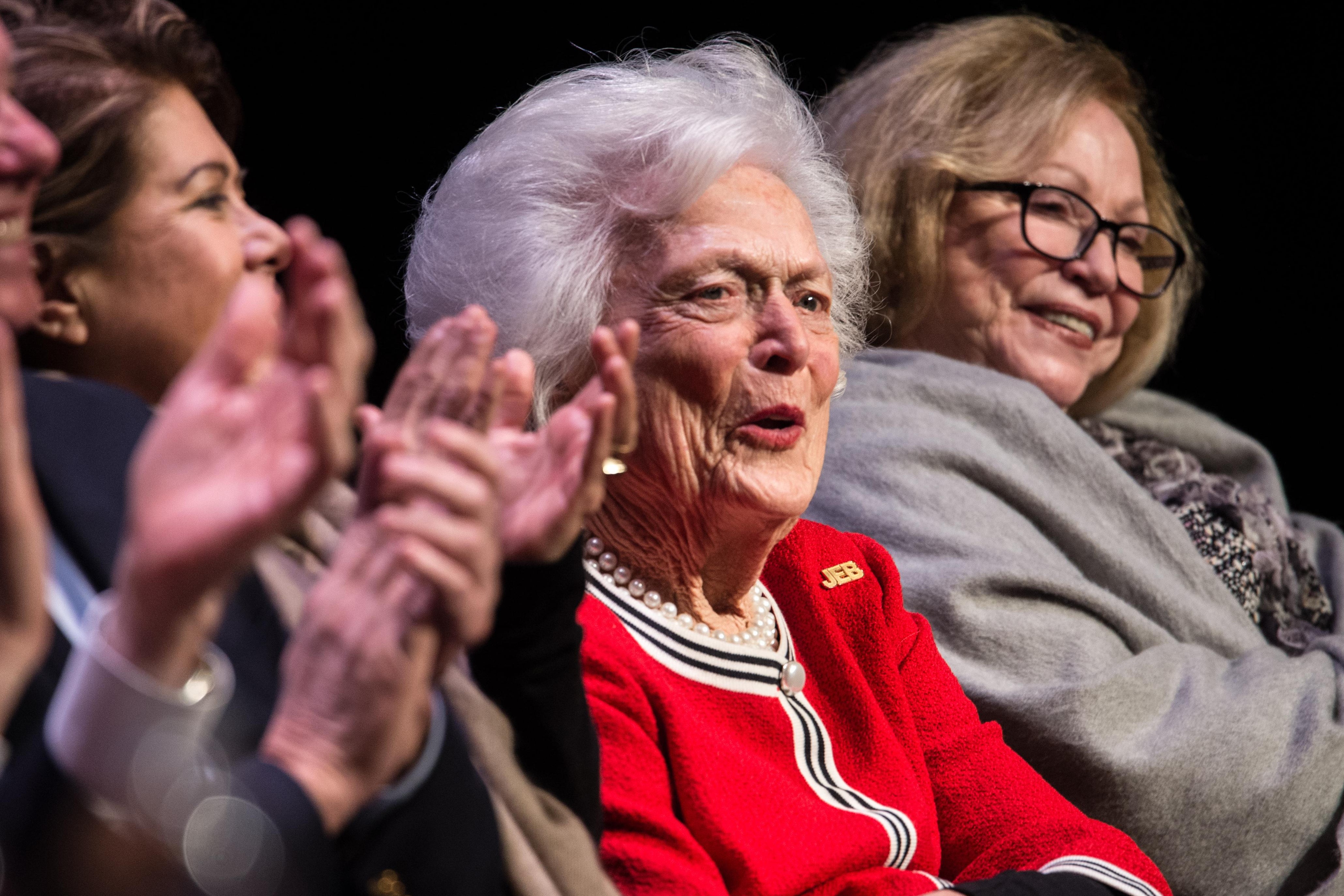Barbara Bush, who died Tuesday at the age of 92, has been remembered as a dutiful spouse and a proud mother, respectively, to two conservative presidents. Bush’s actual influence on their policy views has mostly been opaque, with the conspicuous exception of a story shared in 2010 by George W. Bush upon the release of his memoir. W. said his mother once showed him her miscarried fetus “in a jar,” which turned him against abortion for life. It’s an unfortunate anecdote, not least because Barbara Bush’s legacy on reproductive freedom is hardly that of a pro-life proponent. In fact, her outspoken opposition to politicizing abortion was a significant departure from both her son’s ardent anti-abortion politics and those of her husband, George H.W. Bush.
During H.W. Bush’s presidential campaigns, Bush would coyly decline to answer questions about her personal views on abortion. “I’m not going to tell you my opinion,” she’d say to reporters, or, “I’m not running for President, so I am not going to tell you my position on abortion. But I would love to tell you what George’s is.” Many heard this as a tacit admission that she supported abortion rights. If she agreed with her husband’s anti-abortion stance, which was the far more accepted position within their party, why wouldn’t she just say so? Her reticence on the issue was a very quiet appeal to pro-choice Republicans and independents who might have otherwise felt uncomfortable voting for her husband. It was also rather brave: In 1988, when he won the presidential election, Republican support for abortion rights was lower than it had ever been or has ever been since.
H.W. Bush wasn’t always the vocal anti-choice advocate he was in the White House. He and Barbara Bush openly supported Planned Parenthood, even when Texas elected him as a congressman, and not only because his father was the organization’s former treasurer. In Congress, H.W. Bush supported Title X—a federally-funded family planning program—and the United Nations Population Fund, two things his party is currently attempting to hobble. Around the time he joined up with Ronald Reagan, a darling of the religious right, on the 1980 presidential ticket, he was met with intense questioning about his commitment to anti-abortion policy and solidified his position against abortion. As president, he opposed public funding of abortion care for survivors of rape and incest, even as he nominally supported legal abortion in those cases.
By the time H.W. Bush began campaigning for his second term as president, Barbara Bush was ready to be more vocal about her pro-choice views. In August 1992, she told reporters she disagreed with the Republican Party’s decision to advocate for a Constitutional amendment enshrining a “fundamental individual right to life” for “the unborn child” in its party platform. “I’m not being outspoken or pro or con abortion,” she said. “I’m saying abortion should not be in there, either pro or con.” As a “personal thing,” she explained, the issue had no place in party platforms or conventions.
She also said that, although her husband claimed he would counsel a child not to have an abortion, “you can’t pin a child down and say, ‘You can’t have an abortion.’ That’s against the law.” At the time, the New York Times characterized Bush’s comments as a “sharp break” from her tendency to keep quiet on matters of policy. Her friends told the paper that she privately supported abortion rights. George Stephanopoulos, then communications director for Bill Clinton’s campaign, held up Bush’s remarks as evidence that her husband, Clinton’s Republican opponent, was privately pro-choice, an attempt to prod more conservative Republicans to desert their party’s candidate.
It would be wrong to call Bush an advocate for reproductive rights—if she didn’t think abortion belonged in any party platform, she didn’t think it was a right worth fighting for. But as one of the most visible women in the GOP at the time, her deliberate departure from the president—her husband—on a life-or-death issue for women was a major risk in a party that fetishizes patriarchal authority. “I hate abortions,” Bush wrote in her 1994 memoir, “but just could not make that choice for someone else.” In another world, her perspective might have helped pave a compassionate way forward for Republicans: a personal opposition to abortion paired with a light hand on the law. In this one, she will be remembered as one of the few first ladies who went to the press to tell off the president’s own party about one of its pet issues—an act of principle in a party with precious few.
